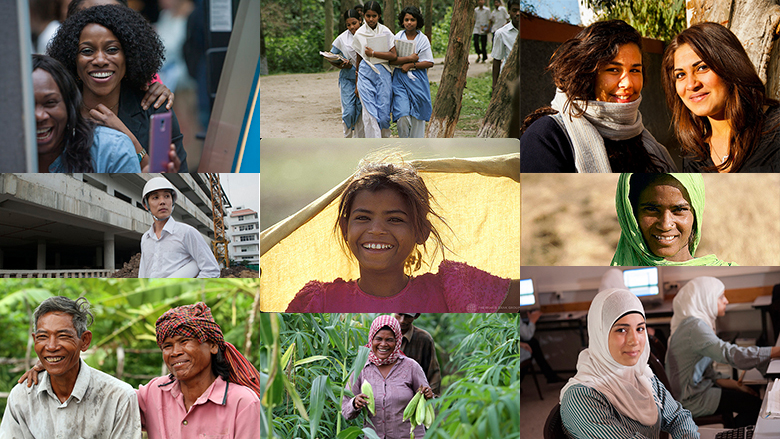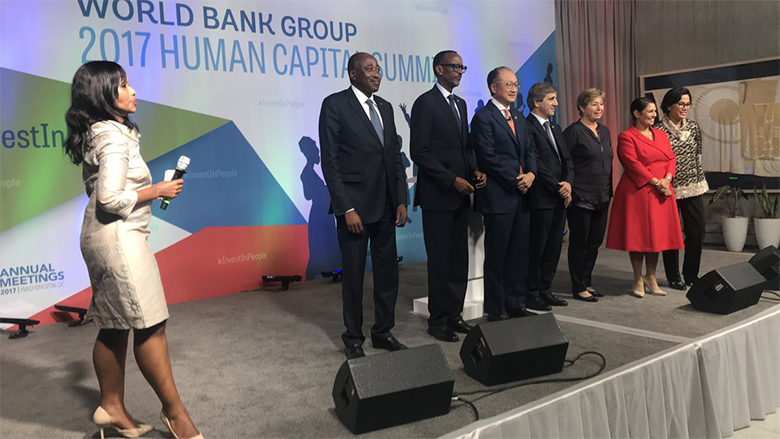Washington D.C—October 16, 2017. At the World Bank Group’s 2017 Annual Meetings, seven countries committed to transformational investments in people either at home or at the global level. These commitments followed World Bank Group President Jim Yong Kim’s presentation of the Human Capital Project, a new effort to understand the link between investing in people and economic growth, and to accelerate financing for human capital investments.
“This year, for the first time, we are including human capital in our measurement of the wealth of nations,” Dr. Kim said. “Human capital is about 65% of the wealth in high-income countries and only 40% in low income countries. We’re helping low income countries overcome this – and there is a sense of urgency – not only because we’re facing several current human capital crises, but also because accelerations in technology will require countries to urgently invest in their people if they hope to compete in the economy of the future.
“A force multiplier that creates limitless potential”
During his keynote address, H.E. Paul Kagame, President of the Republic of Rwanda said: “Human capital is without doubt the driver of high-income growth and the foundation of prosperity. Unleashing human freedom and ability is a force multiplier that creates limitless potential. For that reason, I would like to challenge us all to not limit our ambitions to eliminating extreme poverty but to aim for prosperity and well-being for everyone.”
President Kagame also committed to strong action on investments in young children, in the early years of life. Rwanda, which has achieved excellent health results under his leadership, will reduce childhood stunting from its current level of 30% to 15% by 2020, with 6 percent reductions a year thereafter, he said. Stunting, or low height for age, signals chronic malnutrition and is a red flag indicator for downstream losses of human and national economic potential.


